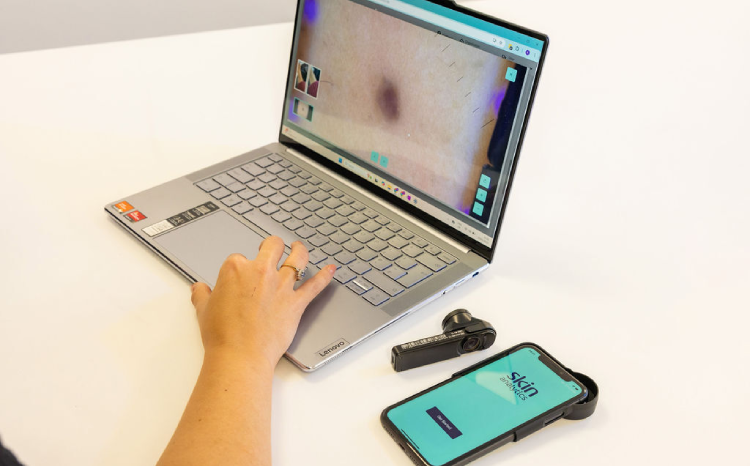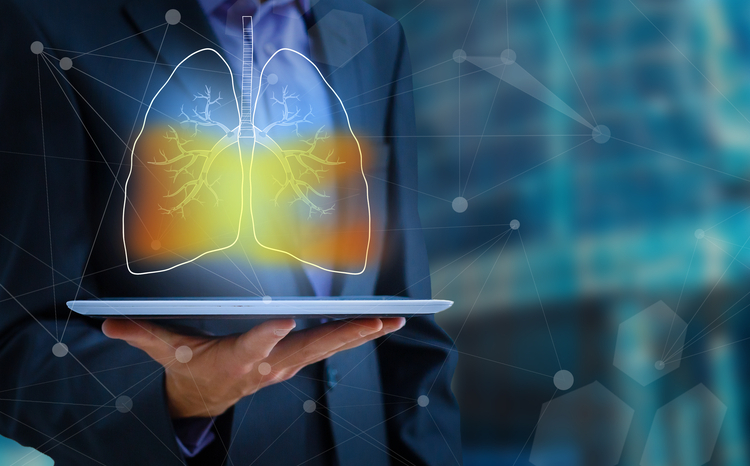Industry news in brief
- 25 November 2022

This Digital Health News industry roundup includes an IT award for the Department of Health and Social Care and Netcompany for the NHS Covid Pass, accreditation for an AI device and a virtual falls service keeping care home residents out of hospital.
Empatica receives FDA clearance and announces Series B financing
Digital health and AI company Empatica has received clearance of its Empatica Health Monitoring Platform by the US Food and Drug Administration (FDA).
The platform has been cleared for continuous data collection to monitor blood oxygen saturation during rest, peripheral skin temperature, activity associated with movement during sleep and electrodermal activity. Each digital biomarker is based on trained algorithms that analyse sensor data in one-minute intervals.
Dr. Marisa Cruz, chief medical officer of Empatica, said: “This clearance represents a significant step forward for our scientific community. Patients, healthcare providers, and researchers deserve digital health products that are accurate, validated in diverse populations, and intuitive to use.
“We are proud to have built a solution that accomplishes these goals, offering a high-quality and reliable digital health tool to scientists working to improve patient outcomes through research and clinical care.”
The company has also announced the closing of its Series B financing. The investment was led by Sanofi Venture and RA Capital Management with participation by Black Opal Ventures.
Empatica intends to use the financing to expand its suite of digital biomarkers for use in both patient care and in clinical trials as digital endpoints.
Cris De Luca, partner at Sanofi Ventures and newly-appointed board member at Empatica, said: “By gaining higher resolution into disease symptomology through novel digital measures and digital biomarkers in clinical and real-world settings, Empatica is unlocking the possibilities of early disease detection, enhanced treatment decisions, and improving quality of life for patients around the world.”
Netcompany and DHSC take Emerging Tech Award at UK IT industry awards
International IT services company, Netcompany, alongside the Department for Health and Social Care (DHSC) have won the Emerging Technology of the Year award in the Technology Excellence category of the 2022 UK IT Industry Awards.
The two companies were recognised for their work on the NHS Covid Pass, which also saw them receive a highly commended in the Best Healthcare IT Project of the Year 2022.
The win reflects the vital role that the NHS Covid Pass has played in the safe reopening of the country. It allows users to shared their Covid-19 status or vaccination status when travelling internationally.
Richard Davies, UK country managing partner at Netcompany, said: “This award recognises our talented teams, expertise, and dedication towards creating technology solutions that help to improve the everyday lives of citizens.
“We are immensely proud of the NHS Covid Pass, which has been a critical tool in helping to re-open society.”
HCML digital solution speeds up access to physiotherapy
HCML’s digital rehabilitation pathway launched last year and has now been found to speed up diagnosis and access to physiotherapy by up to 10 days for private medical insurance patients.
The digital end-to-end service saw digital users complete self-help programmes 10 days earlier than those patients who were assessed via the telephone.
The digital rehabilitation pathway is the first of its kind, starting from the point of referral and combining referral, assessment, treatment, recovery and outcome measurement as part of a seamless, user-centred journey.
The service offers flexibility to users, as it can be accessed outside of standard working hours. It also reduces the pressure on claims handlers, removes the need for GP consultation and ensures patients can access treatment promptly.
Nick Delaney, CEO at HCML, said: “This is about making sure patients can access the right care, as quickly as possible, negating the need for lots of face-to-face appointments and waiting times where possible.
“Our ethos is focused on speed to recovery. The quicker a patient can access care, the better and faster their recovery outcome is likely to be.
“By digitalising the process, we’re helping our patients, and those referred through our partners, speed up the process by nearly two weeks. If you’re suffering and in pain, this is invaluable.”
AI device that predicts severe lung disease receives CE Mark
SIME Diagnostics has announced the successful CE-IVD accreditation of the world’s first clinical AI platform for the rapid prediction of severe respiratory disease.
The CE-marked device is used by clinicians to routinely measure collected samples in 15 minutes via a reagent-free disposable. The device generates thousands of unique datapoints that are then analysed by the platform’s proprietary algorithms to deliver results in life-critical situations.
Povl Verder, CEO at SIME, said: “The CE Mark is an important milestone for SIME as it demonstrates the efficacy and safety of a much needed tool in acute respiratory care, as well as facilitating the adoption of our Clinical AI Platform in the European market.”
The company has also commenced work on a pilot of its RDS Predict application. The technology is used to identify which new-borns are most likely to develop respiratory distress syndrome.
By predicting the condition at birth, neonatologists can put in place early and preventative targeted treatment, improving outcomes and saving lives.
Pilot sites have been selected from the top neonatal intensive care units in Denmark, the UK and the US.
Verder added: “This pilot, which will be led by neonatal key opinion leaders, will further validate the life-saving potential of RDS Predict whilst generating thousands of new data sets. This data will be used to accelerate the development of novel applications in our product pipeline.”
Ascentys secures government grants for work in gaming and AI for Alzheimer’s screening
Digital healthcare start-up Ascentys has secured two grants from a government programme to trial its gaming and AI technology to support screening and diagnosis of Alzheimer’s disease.
Its share of the £25million government funding includes a six figure sum, which will be used to fund the development and piloting of a video game that has the potential to substantially enhance current NHS support for Alzheimer’s.
Game-based Dementia Automated Testing Algorithm, or G: DATA, aims to provide rapid concurrent screening and diagnostics with rehabilitative potential. It uses advanced virtual reality, augmented reality and artificial intelligence to innovate and disrupt existing mental health pathways.
Dr Sayed Kazmi, founder of Ascentys, said: “Treatment and care of Alzheimer’s Dementia costs the NHS millions annually and desperately requires innovation to transform the current treatment pathway for the disease to substantially reduce clinical burden and waiting list times for patients.
“The aim of G:DATA is to have a role in this and to raise the effectiveness and quality of care provided to patients using an inexpensive, highly engaging, and non-invasive alternative to existing approaches.”
Immedicare virtual falls service saves “potentially unnecessary” ambulance attendances
Immedicare’s virtual falls service is helping care home residents avoid hospital admissions and ambulance call-outs by using 24/7 NHS video-enabled clinical support.
The service enables care homes to access experienced clinical support, freeing up ambulances, hospitals, nurses and therapists to focus treatment and care on the people who need it the most.
Michael Roach, director of strategic health alliances at Immedicare, said: “Health and care services are under extreme pressure and it is crucial that we are able to help people stay well and avoid a visit to hospital, especially after a fall.
“Our figures show that over 14,000 ‘potentially unnecessary’ ambulance attendances have been avoided, resulting in a saving of over 21,000 hours of ambulance service time.”
Care homes are provided access to Immedicare’s clinical hub which is staffed by registered practitioners. Non-registered care home staff are then supervised remotely and supported to carry out tasks and care.
The technology also allows for assessments of residents who have had a fall to be carried out remotely, as well as the development of a falls risk assessment and prevention plan.
Rachel Binks, nurse consultant and clinical lead for the Digital Care Hub at Airedale NHS Foundation Trust, said: “Hospital is the last place that people want to be this winter, especially with the expected increase in infections.
“Thanks to our falls service we are reducing the requirement for an ambulance trip or a stay in hospital for people in many areas across the country.”




